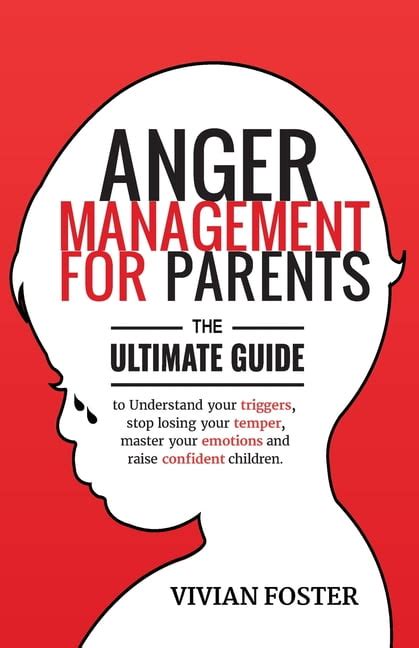Parenting is a journey filled with both joys and challenges, and one of the most significant hurdles is managing frustration. The ability to effectively navigate these moments of stress is crucial, not only for maintaining a positive home environment but also for fostering a growth mindset in children. A growth mindset encourages children to embrace challenges, persist through difficulties, and view effort as a path to mastery. This article explores practical strategies to help parents manage their own frustration and implement growth mindset principles in daily parenting, ultimately creating an environment where both parents and children can thrive together.
Come explore this topic with domgiz.com for a deeper understanding.
1. Understanding Frustration in Parenting: Causes and Effects
Frustration is an inevitable part of parenting, arising from the daily challenges and demands of raising children. Understanding the root causes of this frustration is essential for managing it effectively. Common triggers include unmet expectations, lack of control, and the constant balancing act between work, personal life, and parenting responsibilities. Parents often feel overwhelmed when their efforts don’t seem to yield immediate results, leading to feelings of inadequacy and stress.
The effects of unchecked frustration can be far-reaching. It can lead to negative interactions with children, where anger or impatience overshadows moments that could be teachable or nurturing. Over time, persistent frustration can damage the parent-child relationship, creating an environment of tension and resentment. Children are highly perceptive and often mirror the emotions and attitudes of their parents, meaning that a frustrated parent may inadvertently foster frustration in their child as well.
Moreover, when frustration becomes a dominant emotion, it can hinder a parent’s ability to model a growth mindset. Instead of teaching children to approach challenges with resilience and optimism, parents might unconsciously convey a fixed mindset, where difficulties are viewed as insurmountable. Understanding these causes and effects is the first step toward managing frustration effectively and fostering a healthier, more positive approach to parenting.

2. Techniques to Manage Frustration Effectively
Managing frustration effectively in parenting requires a combination of self-awareness, proactive strategies, and consistent practice. The first step is recognizing the signs of frustration before they escalate. This can involve pausing to take deep breaths, stepping away from a situation momentarily, or mentally reframing the challenge as an opportunity for growth.
Another effective technique is setting realistic expectations. Understand that perfection in parenting is unattainable, and mistakes are part of the learning process for both parents and children. By lowering the pressure for everything to go perfectly, parents can reduce the likelihood of frustration.
Open communication with your children is also key. Express your feelings in a calm and age-appropriate way, helping them understand that everyone experiences frustration and that it’s normal. This can also encourage them to share their own feelings, fostering a supportive environment.
Lastly, practicing self-care is essential. Regular breaks, hobbies, and connecting with other parents can provide the emotional recharge needed to approach parenting challenges with a clearer, calmer mindset.

3. Implementing Growth Mindset Principles in Daily Parenting
Implementing growth mindset principles in daily parenting is about fostering an environment where challenges are seen as opportunities to learn and grow. This begins with modeling the growth mindset yourself. Children often emulate their parents, so when they see you approach difficulties with perseverance and a positive attitude, they are more likely to adopt similar behaviors.
One effective way to instill a growth mindset is through language. Replace phrases like “You’re so smart” with “I’m proud of how hard you worked on that.” This shift emphasizes effort and persistence over innate ability, helping children understand that success comes from dedication and resilience.
Encouraging curiosity is another crucial aspect. When children encounter problems, guide them in exploring solutions rather than simply providing answers. Ask open-ended questions like “What do you think we could try next?” to promote critical thinking and problem-solving skills.
It’s also important to normalize mistakes as part of the learning process. When your child makes an error, rather than focusing on the failure, discuss what can be learned from the experience. This approach helps children view setbacks as a natural part of growth, reinforcing the idea that their abilities can develop over time with effort and persistence.

4. Practical Tips for Encouraging a Growth Mindset in Children
Encouraging a growth mindset in children involves creating an environment where learning and effort are valued over innate talent. Start by praising the process rather than the outcome. Acknowledge the hard work, strategies, and perseverance your child uses, reinforcing the idea that effort leads to improvement.
Incorporate challenges into daily activities by setting small, achievable goals that push your child slightly out of their comfort zone. Celebrate these achievements, no matter how small, to build confidence and resilience.
Teach your child to view mistakes as learning opportunities. When errors occur, discuss what went wrong and explore how they can approach the task differently next time. This helps them see setbacks as part of the journey, not as failures.
Encourage a love for learning by exposing your child to new experiences, whether through books, hobbies, or conversations. Cultivate curiosity by asking questions and exploring answers together, fostering an inquisitive mindset that thrives on discovery and growth.
5. Success Stories: Real-life Examples of Managing Frustration and Promoting Growth Mindset
Real-life examples of parents successfully managing frustration and promoting a growth mindset can provide powerful inspiration. One mother, faced with the challenge of her child struggling with math, chose to shift her approach. Instead of expressing frustration when her child didn’t understand a concept, she embraced a growth mindset. She started using phrases like “Let’s figure this out together” and praised her child’s effort rather than just the correct answers. Over time, her child’s attitude toward math changed from one of dread to curiosity, and his performance improved as he became more willing to tackle difficult problems.
Another example is a father who dealt with his frustration by practicing mindfulness. When he felt overwhelmed, he took a moment to breathe deeply and reminded himself of the bigger picture. This simple act helped him respond to his children with patience and understanding, even in challenging situations. His children noticed this calmness and began to approach their own frustrations more thoughtfully, mirroring his growth-oriented mindset and developing resilience in th
6. Resources and Tools for Continued Learning and Improvement
For parents looking to continue their journey in managing frustration and fostering a growth mindset, numerous resources and tools are available. Books such as “Mindset: The New Psychology of Success” by Carol S. Dweck offer foundational insights into the principles of growth mindset and practical ways to apply them in everyday parenting.
Online courses and workshops focused on positive parenting techniques can provide further guidance and support. Websites like Mindful.org offer articles and exercises on mindfulness, which can help parents manage stress and approach challenges with greater calm and clarity.
Parenting apps like ParentLab offer daily tips, activities, and expert advice tailored to fostering a growth mindset in children. Engaging with communities, whether through local parenting groups or online forums, can also provide valuable support and shared experiences.
By continually seeking out new information and connecting with other parents, you can stay informed and motivated, ensuring that both you and your children continue to grow and thrive.
Mastering parental strategies to manage frustration and foster a growth mindset creates a nurturing environment where both parents and children can thrive. By understanding the causes of frustration, applying effective techniques, and implementing growth mindset principles, you can transform challenges into opportunities for growth. With the right resources and support, you can continue to develop these skills, ultimately promoting resilience and a positive outlook in your family.
domgiz.com

